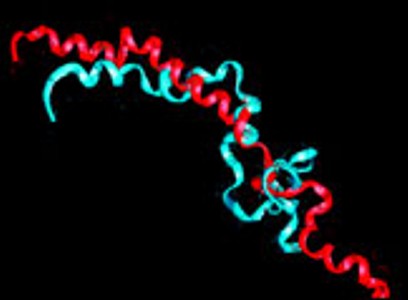.gif) VIARTIS � |
||
|
� � � � |
PARKINSON'S DISEASE NEWS � |
� � � � � � � � � � � � � � � |
|
11th June 2009 - New research THE PREVALENCE OF GENETIC PARKINSON'S DISEASE Annals of Human Genetics [2009] May
21
[ahead of print] (Pais�n-Ruiz C, Washecka N, Nath P, Singleton AB, Corder EH.)
Complete abstract�
� E-MAIL NOTIFICATION : If you would like to be notified by e-mail when any new research, news reports, new books, or new resources�are added to Parkinson's Disease News,� please double click on� E-MAIL NOTIFICATION, or e-mail [email protected].� No form of identity is required.� E-mail addresses are not used for any other purpose. Parkinson's Disease News details all significant new research, news reports, new books, and new resources concerning Parkinson's Disease and those medical disorders that often coincide with Parkinson's Disease. It is compiled from an analysis of� all newly published research, news reports, new clinical trials, all newly published books, and new web sites. A summary and analysis of the new research are provided,� as well as links to the complete abstracts and news reports.
� |
||
|
��� Back to PARKINSON'S DISEASE� � |
||
.gif) |
||
| � | ||
| �2006-2009� Viartis | ||
| � | ||
| 2015-11-10 14:49:28 | ||
| � | ||
| [email protected] | ||
 number
of people genetically inclined towards Parkinson's Disease is far more than
previously thought. The gene is called LRRK2 (leucine risk repeat kinase 2),
which produces a protein called dardarin, a word derived from the Basque word
dardara, meaning tremor. Mutations in LRRK2 are a common cause of familial
Parkinson�s disease. A combination of four gene variants are found in a third of
people with Parkinson�s Disease, but they are infrequent in the general
population. This advance is expected to enable the identification of people at
the greatest risk of Parkinson's Disease before symptoms arise.
For more current news go to
number
of people genetically inclined towards Parkinson's Disease is far more than
previously thought. The gene is called LRRK2 (leucine risk repeat kinase 2),
which produces a protein called dardarin, a word derived from the Basque word
dardara, meaning tremor. Mutations in LRRK2 are a common cause of familial
Parkinson�s disease. A combination of four gene variants are found in a third of
people with Parkinson�s Disease, but they are infrequent in the general
population. This advance is expected to enable the identification of people at
the greatest risk of Parkinson's Disease before symptoms arise.
For more current news go to
 ����
����
 ���
���
 ���
���
 ����
����
 ����
����
 ����
����
 ����
����
 ���
���
